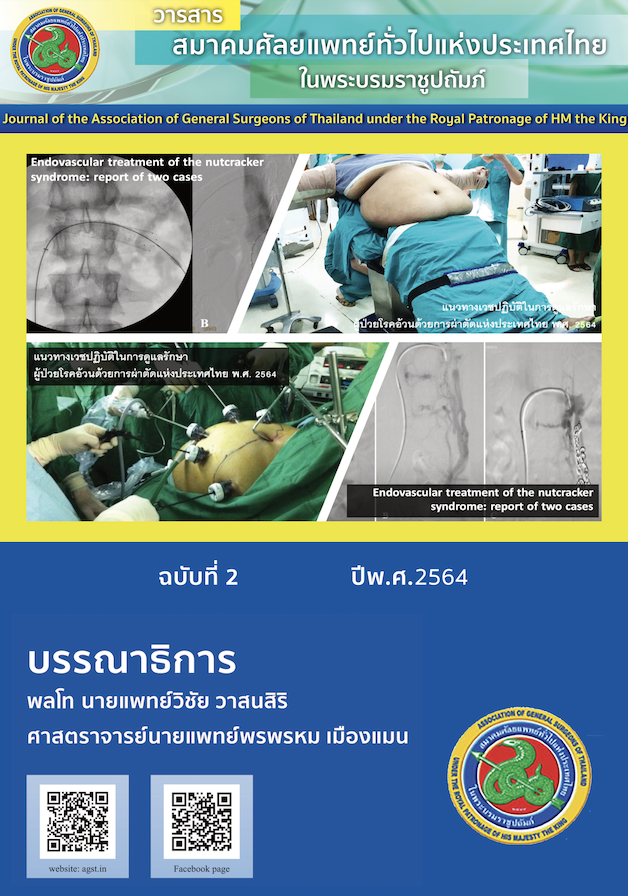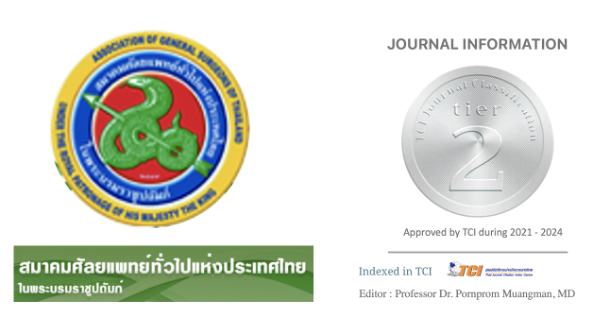Does the Timing of ERCP Affect to The Outcomes of Acute Cholangitis?
Keywords:
Endoscopic Retrograde Cholangiopancreatography, Acute cholangitisAbstract
Background and objective: To observe the correlation between the timing of Endoscopic Retrograde Cholangiopancreatography (ERCP) and the outcomes of acute cholangitis
Materials and Methods: Clinical data on Bhumibol Adulyadej Hospital admissions of all patients who diagnosed as acute cholangitis and underwent to ERCP procedure for biliary drainage were retrospectively reviewed. Patients were divided into 2 groups based on timing of ERCP after admission. 1. the early ERCP group (ERCP performed within the first 48 hours after admission) and 2. the delayed ERCP group (ERCP performed after 48 hours of admission). Outcomes of treatment were compared between these 2 groups.
Results: The study consists of 91 patients who were diagnosed with acute cholangitis and underwent ERCP. Forty-eight patients were categorized into the early ERCP group and 43 patients of the delayed ERCP group. Median length of hospital stay in the early ERCP group was significantly shorter compared to the delayed ERCP group (6 days VS. 11 days, p <0.001). The overall morbidity and mortality were not significantly different between the early ERCP group and the delayed ERCP group
Conclusions: Based on the obtained data, early ERCP procedure significantly reduces the length of hospital stay in patients with acute cholangitis. However, it has no correlation with morbidity and mortality rate.




